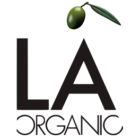Oil tourism routes
Ronda and its highlands and surrounding areas boast a wealth of olive oil production sites. Olive oil has a strong tradition on the Iberian Peninsula and beyond that dates back to Antiquity. Mankind has been harvesting this liquid gold since the time of the Fertile Crescent more than 6,000 years ago, but olive-growing dates even further back, to 12,000 BC. Spain is one of the places where olives continue to be cultivated in a traditional but pioneering fashion, preserving all the properties of a product the WHO has signposted as the reason for Spaniards’ “good health”.
Spain is the world’s leader in olive oil production and exportation.
With groves covering around 2.5 million hectares that turn out some 1.7 million tonnes, Spain produces fully half the world’s olive oil. By order of volume in the ranking (2018 figures), it is followed by Greece (230,000 tonnes), Turkey (220,000), Italy (200,000) Tunisia (165,000) and Portugal (115,000 tonnes).
In Spain, the climate and geographic features of Andalusia make it one of the chief production regions of both table and pressed olives. It has therefore become a centre of interest for oil tourism routes, an activity increasingly popular for getting first-hand, direct knowledge of the history of olive oil and both the traditional and cutting-edge techniques used to produce the precious liquid.
What is oil tourism?
In the search for new offerings, tourism has diversified into customised trends such as an interest in artisanal activities, history, tradition, gastronomy and, of course, farming and the manufacturing processes behind produce with its own specific culture. In this respect, olive oil is an iconic product, with numerous health benefits not just as a food but also widely touted for its cosmetic properties.
It is understandable that a product known the world over for its properties should generate interest. But in addition, the Olive Grove Landscapes of Andalusia have been proposed for recognition as a UNESCO World Heritage Site by 2020 for their beauty and value, as well as their age-old culture. Tourism based on olive oil and the world of the olive tree, revealing its history, production and cultivation process, varieties, properties, uses and applications, has garnered the name oil tourism.
Olives are the main crop grown in Malaga province, with 130,000 hectares of groves that were on track to produce more than 85,000 tonnes of oil in 2019. Malaga and its environs are also part of a region with a heavy tourist footfall (Malaga has more tourist bookings at Easter than any other city in Spain, with 88% occupancy rates in 2019 compared to 78% for the rest of the country). In addition to beach holidays, the area boasts a huge diversity of rural tourism offerings for the wealth of its landscapes, cities and towns, its foodie culture, history, cultural heritage, folklore, customs and natural surroundings.
Oil tourism routes
Oil tourism, like wine tourism, gives you the chance to tour an almazara, learn about the land where the oil is produced and how it is extracted and made, and enjoy a tasting of craft oil at the end. Holidays also cater to areas related with health and cosmetics, in treatments based on pure olive oil for application to body and face and for external and internal use.
Although this type of offering is not as popular as that of wine tourism (which, although relatively recent, has grown considerably since it began), it is fast gaining ground and has shifted from the domain of middle-aged people with a specific interest in oil to being sought by families and a wide range of different types of visitors. Oil tourists are mostly Spanish (60% of all tourists, followed by the French and English), but interest in the history of olive oil is growing and oil tourism routes are now a major feature not only of Andalusia but also in other parts of Spain that are strategic points and traditional olive oil producers.
Oil tourism in Ronda What to do in Ronda?
There are numerous almazaras open to visitors and offering content related to olive oil. From the traditional “miller’s breakfast” (the meal that the day labourers who started or finished their shift at the oil mill would eat together, consisting of bread, freshly pressed oil, olives and, depending on what was available, tomatoes, fruit or cod) to oil tasting walks through ancient olive groves and even taking part in harvesting tasks.
Specifically, there are several offerings in Ronda built around oil tourism and the Provincial Council supports and promotes olive oil through foodie festivals and agrofood fairs, along with courses, events and activities focusing on oil tourism and the sensory analysis of extra virgin olive oil. Hardly surprising when there is such a wealth of oil in the region, with many olive-growing properties and almazaras in the district, and national and even worldwide prize-winning oils in the province. One example is LA Organic oil, which beat off 29 other brands to win the world’s best oil according to the prestigious Flos Olei guide. This oil produced in LA Amarilla de Ronda has its own almazara and tourism experience at “LA Organic Experience”, a unique event in the world of organic extra virgin olive oil combining organic farming, oil history, fine dining, art, tradition and the avant-garde, as well as a cortijo in Ronda, “Cortijo LA Organic”, a splendid country homestead with stunning views over the Ronda highlands.
Bookings can be made at https://www.laorganic.es/en/farmhouse/
